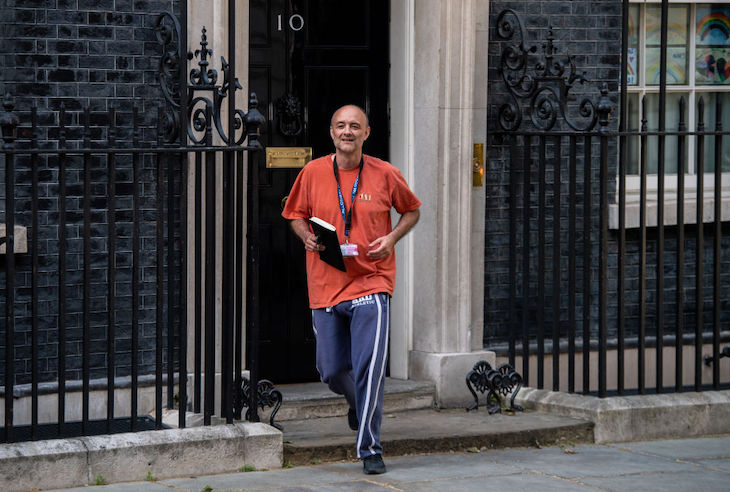Madrid, Spain
Vox, the right-wing political underdog, received 10 percent of all votes in the Spanish general elections on Sunday. Just three years ago, they didn’t have a single seat in parliament. Now, they have 24. To understand what has made them so popular, despite the vitriol they have received from all quarters, one has to look back to last year and understand the developments which have taken place in Spain since then.
Back in June 2018, a no-confidence vote saw the then-Prime Minister Mariano Rajoy step down in favor of Pedro Sanchez, leader of the center-left Socialist party (PSOE). Sanchez was supported by an array of far-left and nationalist politicians, lured into a coalition by the promise of the spotlight, as well as more leniency from the government on the Catalan issue. The justification for the no-confidence vote? Nothing less than rampant cases of illegal funding and other types of corruption in Rajoy’s People’s Party (PP). Faced with an avalanche of allegations and prosecutions, the PP collapsed in the polls.
The decline of the People’s Party since 2018 led to the disenfranchisement of a large number of voters positioned on the right, who are eager to punish the PP for its sins, but do not want to concede any terrain to Catalan supporters of independence. In retrospect, it is hard to understate the impact that the Catalan issue has had on steering voters away from the People’s Party, which has been soft on the issue, and toward other right-wing parties. One of the beneficiaries of this was the center-right Citizens party (Cs), which was able to steal moderates from the PP, and Vox, who stood strong on traditional values. Vox has refused to yield to the left, and proudly upheld conservative values and practices. For a country with a deeply-rooted Catholic tradition, the defense of these ideas make it an appealing political movement.
Santiago Abascal, leader of Vox, is currently one of the most symbolic figures in the Spanish political landscape, and this goes beyond his charisma and down-to-earth attitude. His father, with the same name, was a prominent figure in Basque and Spanish politics throughout the latter half of the 20th century, and was repeatedly targeted by separatist terrorists (such as ETA) for his position in the PP. Abascal junior, who grew up ‘accustomed to checking under the family car for bombs before driving’, was also a PP member until he founded Vox in 2013. And while his party was largely dismissed as a political force, in December 2018 they turned heads when they won 12 seats in the Andalusian parliament for the first time.
Since its creation, Vox has always supported the ‘unity of Spain’, namely, a push-back against nationalist movements in Catalonia and the Basque country, against ‘those that want to break Spain apart’. As part of this, it has established an aggressive and somewhat divisive narrative that calls for the Reconquista of Spain, alluding to images of the Cid Campeador, a historical Spanish figure who led the military campaign against the moors in the 11th century, when the Iberian peninsula was under Islamic control.
Abascal’s party has also pushed for the end of decentralization. At present, Spain is like a federal state, with separate regions given a large degree of political autonomy. Vox believes that this system incurs disproportionate costs, and means that local politicians have privileges that they can exploit. Moreover, they believe it results in economic inequality between the regions, which in turn causes more division.
But while Vox’s proposals to end Spain’s federal system are certainly daring, most of the fear the party inspires is due to its less progressive policies. On immigration, Abascal calls for the deportation of illegal immigrants and tighter control over Spain’s borders. Vox has also been very critical of Islamic extremism, and calls for the closure of radical mosques and immediate expulsion of Imams promoting radicalization, including lack of integration and the mistreatment of women. These policies have prompted many critics to call the party xenophobic and Islamophobic, a criticism Vox have countered by welcoming people of all colors, nationalities and sexual orientations as members.
Abascal’s party has also been very critical of gender ideologies, namely radical feminism, which is prominent in Spain. The party’s intention to eliminate Spain’s gender protection laws is enough for them to be given the label of misogynists. The party members’ positions on abortion and homosexuality, influenced by its Catholicism, have also done them no favors in this regard, although Vox has been more lenient and silent about these two policies recently, and some of its affiliates are openly gay.
But all in all, in practical terms, the presence of Vox in the 2019 elections has had a number of negative repercussions on the right-wing. Despite the traditionalist revival that it has awakened throughout Spain, the party’s public image – which has arguably been targeted and exploited by left-leaning media and parties – has prompted many disenfranchised left-leaning voters to retaliate by lashing out at all parties on the right. Spain’s territorial system also means that right-wing votes are split between Vox, PP and Cs, allowing the center-left to make gains they wouldn’t have won against a unified right-wing opposition. Even so, with the PP’s reputation still in tatters and with tensions in Catalonia showing no signs of reducing, it seems likely that Vox’s popularity will only continue to grow.
This article was originally published on The Spectator’s UK website.

























